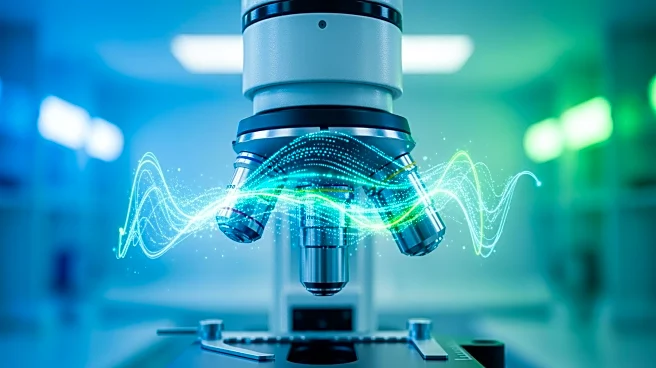What's Happening?
Researchers have developed CarbaDetector, a machine learning model designed to accurately predict the presence of carbapenemase-producing Enterobacterales using disk diffusion tests. This model aims to improve
the specificity of current screening methods, which often result in false positives. CarbaDetector demonstrated a high sensitivity of 96.6% and a significantly improved specificity of 85.0%, reducing the need for confirmatory tests. The model's performance was validated on external datasets, showing its applicability even with incomplete data. CarbaDetector represents a significant advancement in the detection of drug-resistant bacteria, offering a more efficient and resource-saving approach.
Why It's Important?
The development of CarbaDetector is crucial in the fight against antibiotic resistance, a major public health concern. By improving the accuracy of detecting carbapenemase-producing bacteria, the model can help healthcare providers make more informed decisions, potentially reducing the spread of resistant strains. This advancement could lead to better resource allocation in clinical settings, particularly in areas with limited access to advanced testing facilities. The model's ability to work with incomplete data sets further enhances its utility, making it a valuable tool in diverse healthcare environments.
What's Next?
Future development of CarbaDetector will focus on expanding its dataset to include more diverse bacterial species and resistance mechanisms. Researchers plan to incorporate additional antibiotics into the testing process to further improve the model's accuracy and usability. As the model is refined, it may become a standard tool in clinical microbiology, aiding in the global effort to combat antibiotic resistance. Continued research and validation are necessary to ensure its effectiveness across different geographical regions and clinical settings.










